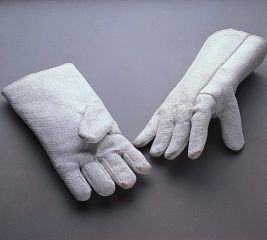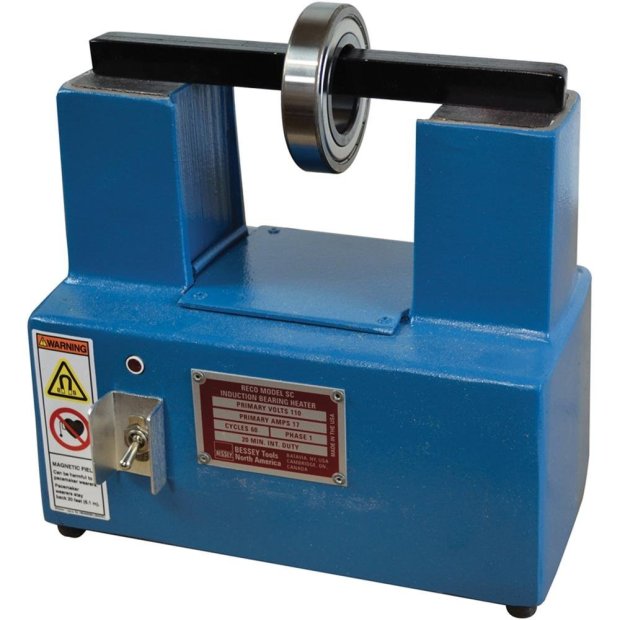One of the things I loved the most about being an electrician at the coal-fired Power Plant in North Central Oklahoma was that I spent a good deal of time troubleshooting and fixing Electronic Circuit boards. My Mentor Bill Rivers had taught me the fine art of repairing precipitator circuit boards to the point where I was very comfortable taking a board with burned out circuits and rebuilding it piece at a time until it worked well enough to be put back into service. There is something comforting about fixing electronic circuit boards.
I had even built a little test box out of a proximity switch on a Gaitronics phone receiver hook where I could plug a large Operational Amplifier into it and turn a little knob to test it, where it would light up little red LEDs. Like I said. It was really fun.
I had told my friend from High School, Jesse Cheng, who was now a doctor just graduating from Harvard with his Masters in Public Health how much fun I was having. Even though he was a medical doctor with an Engineering degree from Yale, he wished that he could do what I was doing. He even applied for an Engineering job at our plant so that he could at least come down to the electric shop where I would let him help me troubleshoot and repair all kinds of electronic circuit boards.
Unfortunately, he was overqualified for the job. Louise Gates asked me about him, since he had listed me as a reference on the job application. I explained to her that even though he was a Medical Doctor, what he really wanted to do was work in a power plant with the great bunch of people I had told him about. He would easily have given up his career to be blessed by the presence of such great Power Plant Men.
I will tell a side story about my Friend Jesse, before I proceed with the painful loss of those things that Power Plant Men love….
I met Jesse when I was a sophomore in High School. He was the student body president when I arrived at Rockbridge High School in Columbia, Missouri. We immediately became friends when we met. We both enjoyed the same things. The main thing was playing games, or solving puzzles.
I quickly learned that Jesse loved playing all kinds of games. So, when I would go over to his house, we would usually go down in the basement where he had a new game waiting for me. We would sit down there and play games until his mother would call us for dinner.
One day my brother came with me and we went down in the basement to play the game of Risk.
Jesse was beating us so bad that after the 3rd move, we joined forces only to have Jesse wipe us off of the map on the 4th turn. Then his mother called us for dinner.
Jesse’s mother was a small Chinese lady with a meek voice. When Jesse had guests over, she would cook his favorite meal. Chili. So, when it was time for dinner, she would call down to us from the top of the basement stairs, “Jesse! Come get your Chili!” I had heard that call to action many times, and I had obediently left whatever we were playing to go eat supper.
After we had finished dinner and talked with Jesse for a while, my brother and I left to go home. On the way home my brother started to chuckle. I asked him why, and he responded that he could still hear Jesse’s mother calling “Jesse! Come get your Chili!” in his head. It sounded funny to hear the small Asian voice calling to Jesse to come get his Chili.
So, that became a catch phrase for when you wanted to holler at someone, but didn’t have anything particular to say. We would just yell out, “Jesse! Come get your Chili!!” It always brought a smile to the faces of anyone who knew the story, and a confused look on the faces of any bystanders.
When I went to Columbia, Missouri to the University of Missouri, I told this story to the people that lived around me in Mark Twain Dormitory. I would smile when I would be heading back to the dorm after class and someone from a block away would spy me from their dorm window and would yell at the top of their lungs, “Jesse! Come get your Chili!!!”
Jesse was in town one day shortly after the Christmas break and came to visit me in the dorm. He walked off the elevator looking for the room where I lived. The Resident Assistant saw him and immediately asked him, “Are you Jesse Cheng?” When he replied that he was, he said, “Kevin is in Room 303.” When I answered the door, Jesse said he couldn’t figure out how everyone on the floor seemed to know who he was. I told him that “Everyone knows you Jesse! You’re my friend!”
So, there were times when I was at the plant where a Power Plant Man (or Woman) would yell to me, “Jesse! Come get your Chili!” No one can say that without a big smile on their face, and on mine. It’s poetry to my ears. Jesse’s mother forever lives on in our memories.
End of Side Story….
So, why am I talking about troubleshooting electronic circuit boards in a post about Power Plant Men losing the things they love most? Well… because all good things had to come to an end. Electronic circuit boards included.
When I went to search for a picture of an electronic circuit board on Google Images, I had to page down a couple of times before I found a partial picture of a circuit board that had capacitors, resistors and diodes on it. They just aren’t used much anymore. Everything has gone digital. Instead of troubleshooting electronic parts, you diagnose signals being sent between various processors and memory chips. It just isn’t quite the same.
So, lucky for Jesse that he wasn’t hired at our plant. By the time he would have showed up, we were no longer changing out transistors. We were programming chips. Now the circuit boards looked more like this:
Other things in the electric shop were taken away or became “unused” that I used to really enjoy using. We had a heat gun mounted on the wall where we would heat up bearings in order to put them on the shaft of the motor. We would stand there monitoring the bearing to see if it was hot enough… We would spit on our finger and drip the spit on the bearing. When the spit would sizzle, we knew the bearing was hot enough.
There was something comforting about the smell of hot grease from the bearing mixed with the smell of smoldering spit… Also in the winter, it felt good to warm yourself around the heat gun while you waited for the bearing to heat up.
Well. Eventually, we no longer used the heat gun. We had a fancier bearing heater that looked like a strange aluminum cone hat.
The bearing heater heated the bearing more uniformly, and we could use a special temperature pencil that would melt when the bearing reached the right temperature. No more boiling bearing grease smell, and no smoldering spit. Oh well….
When the bearing was the right temperature, we had a pair of large white Asbestos Gloves that we would wear to pick up the bearing and slap it onto the shaft of the motor. The pair of Asbestos gloves in our shop came from the old Osage Plant. They were made from genuine Asbestos. I suppose a white cloud of Asbestos dust would fly up in your face if you were overly moved by the song on the radio in the shop and felt a sudden urge to clap.
Well… You can imagine what happened to our Asbestos gloves. Those gloves that you knew were going to keep your hands from being burned as you picked up the scalding hot bearing. You never had to worry about being burned…. but…. oh well… They were taken away. Not deemed safe for use by humans.
In the shop when before and after we took apart a motor, we performed a test on the motor called, “Meggering the motor”. That is, we clipped a megger to the motor leads and one to the motor case and cranked a hand crank on the side of the Megger to generate 1,000 volts to see if the insulation in the motor was still good.
Meggers are much like an old telephone from way back, where you would turn a crank to call the operator. Or you could take it fishing with you and shock the fish in the water to make them float to the surface. But…. I wouldn’t know about that. I just heard stories from other Power Plant Men about it.
A manual crank megger was similar….
Alas…. After a while, a Meggar with a crank became a thing of the past, as did our Simpson Volt-Ohm Meter:
It wasn’t only electric shop equipment that the Power Plant Men held dear that kept disappearing. We used to wear safety belts at the plant to keep us from falling off of high places. Would you believe that these Safety Belts were taken away from the Power Plant Men as well?
I explained how the electronic circuit boards were replaced with digital cards. I also explained how the heat gun was replaced with a nifty new bearing heater, which was also almost made obsolete by another invention called an Induction heater.
This heater didn’t even get hot. The bearing would heat up by a magnetic field on the bar that would cause an electric current to build up around the bearing, causing it to heat up almost by magic.
The Asbestos Gloves were replaced with well padded Kevlar Gloves:
They worked just as well as the asbestos gloves without the Mesothelioma thrown in as a bonus.
As for the volt-ohm meters. Each electrician was eventually issued their own new Fluke Volt-Ohm Meter. I dare say. It was a step up from the old Simpson meter. A lot safer also:
And the Safety belt? Well… It turns out that if someone were to fall and be hanging from a safety belt, the injury caused by just dangling for any length of time on a safety belt while waiting to be rescued can be devastating to the human body. So, the belts were removed, and Power Plant Men everywhere were issued new and improved Safety Harnesses.
So… you see… What it boils down to is this…. Power Plant Men generally love their jobs. Real Power Plant Men I mean. So, whenever there is change, they feel the pain of loss. They lose those things they hold dear. Yeah. They know that whatever is replacing the things they are losing will most likely be a new and improved version of what they already had. I think it’s the nostalgia of how things used to be that they miss the most.
So. That is why Power Plant Men always seem to lose the things they love the most. Because they love doing what they do, and things are always changing. Power plant Men just change right along with it. But sometimes it hurts a little.














Great story, Kevin.
When I transferred to the Seminole Plant, one of my jobs was to do the “daily sheets”. For each generating unit I calculated total MW, steam flow, gas burned, average temperatures and pressures, etc. We were privileged to have the first non-mechanical calculators in an OG&E Power Plant. The old calculators (I used at Mustang and Horseshoe Lake) were mechanical – motors, gears, shafts, levers, dials, and more gears. They made cool sounds when you hit the “Total” key. They even had a unique smell too. We paid $900 for each Monroe calculator in 1970. They didn’t make any noises. They didn’t give off any scent, either. But they were much faster, smaller, and lighter. I missed the old mechanicals. I still have the Post slide rule I used at OU too.
LikeLike
Sadly, change is progress. I used a blackboard, now it’s a white board!
LikeLike
I loved your post, change comes in our lives but hopefully in our lives we blossom and become better for it, and always cherish the memories. I smiled a thousand times while reading it and will always remember “Jessie come eat your chili! Blessings!
LikeLike
Change, yes…but it’s more than that. Old time craftsmen involved a lot of themselves in their work. I remember men who grabbed a wire to determine the voltage on it. A lot of work was done by feel, a sort of extra sense that craftsmen developed on the job. Projects came out right because they knew what was intended and how to make it happen that way. They were an important link in the chain of production.
Now so much work is untouched by human hands; merely moved along by button-pushers who have replaced true craftsmen. An old time carpenter or electrician could do things today’s replacements never dream of. Cabinet makers and machinists are gone, replaced by machine operators. Much is no doubt gained, but so much is lost…
An average man in those days, was pretty competent with his hands, expected to have a list of skills and competencies…and that’s gone, too.
LikeLike
[…] introduced my friend Jesse Cheng in the post “Why Do Power Plant Men Always Lose the Things They Love Most“. He had an HP-25 calculator and had loaned it to me to take a Chemistry test. He showed […]
LikeLike